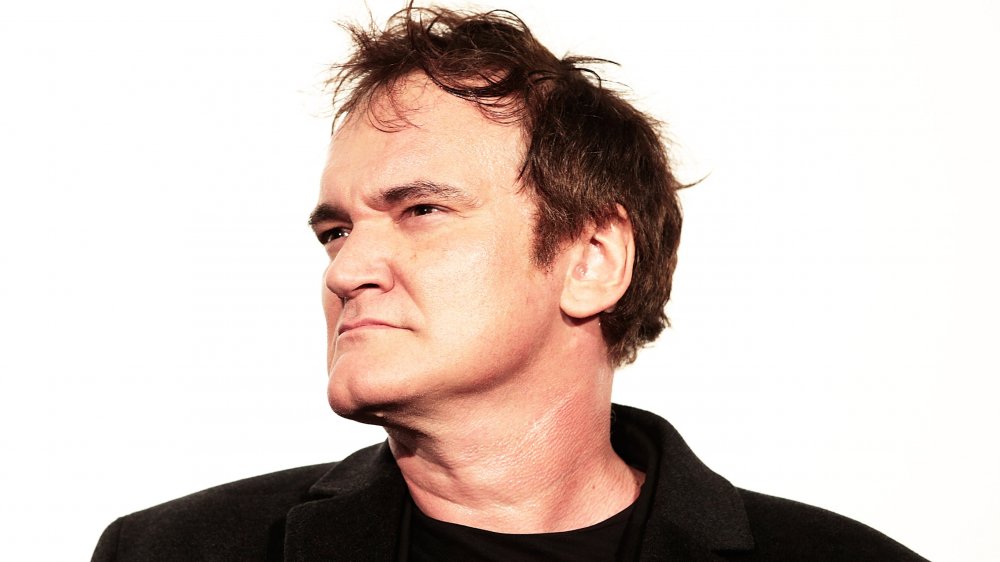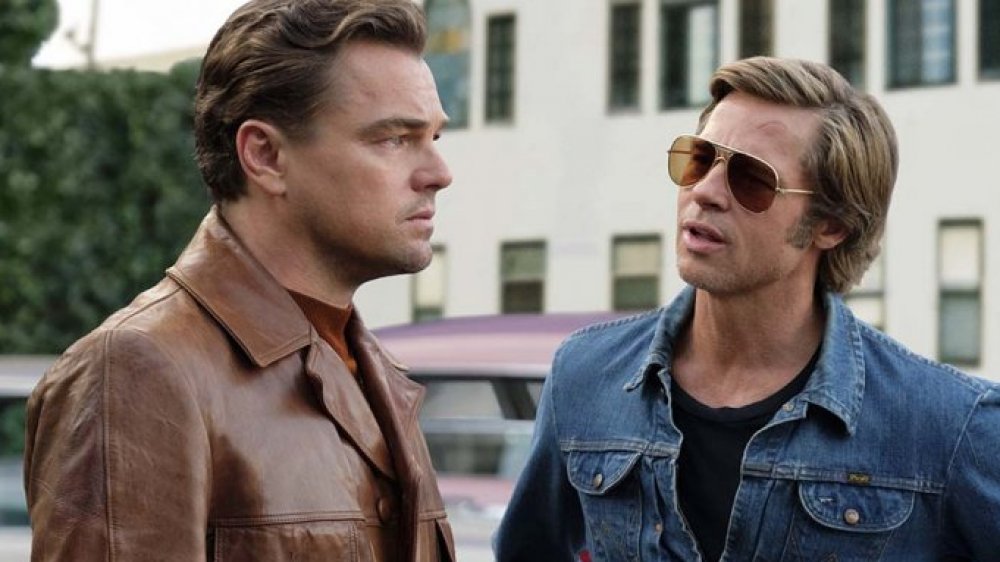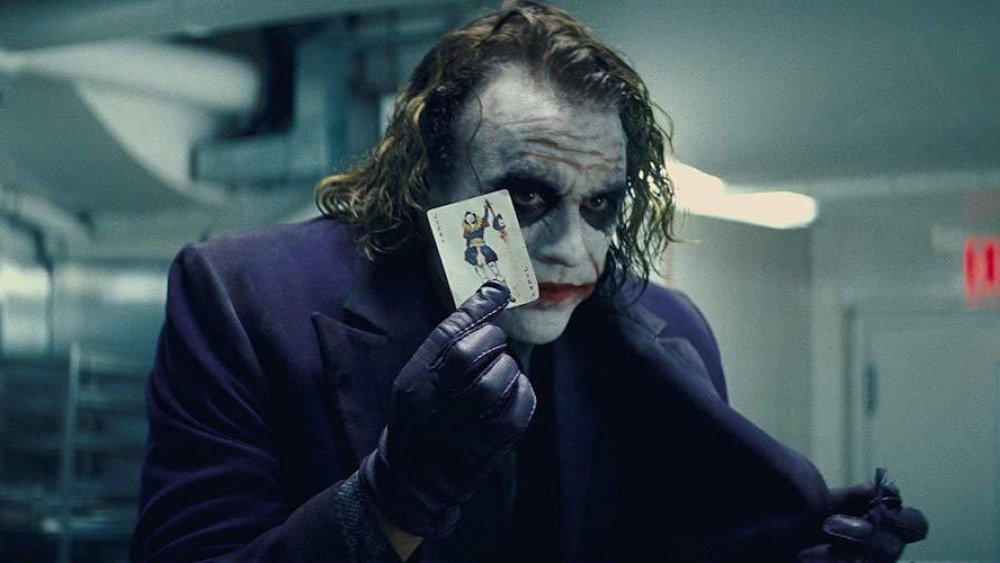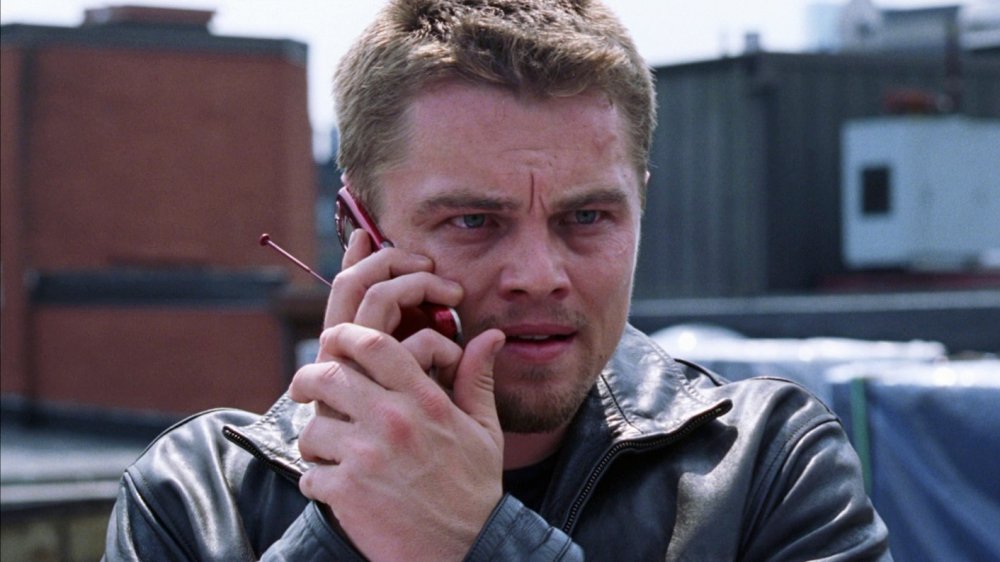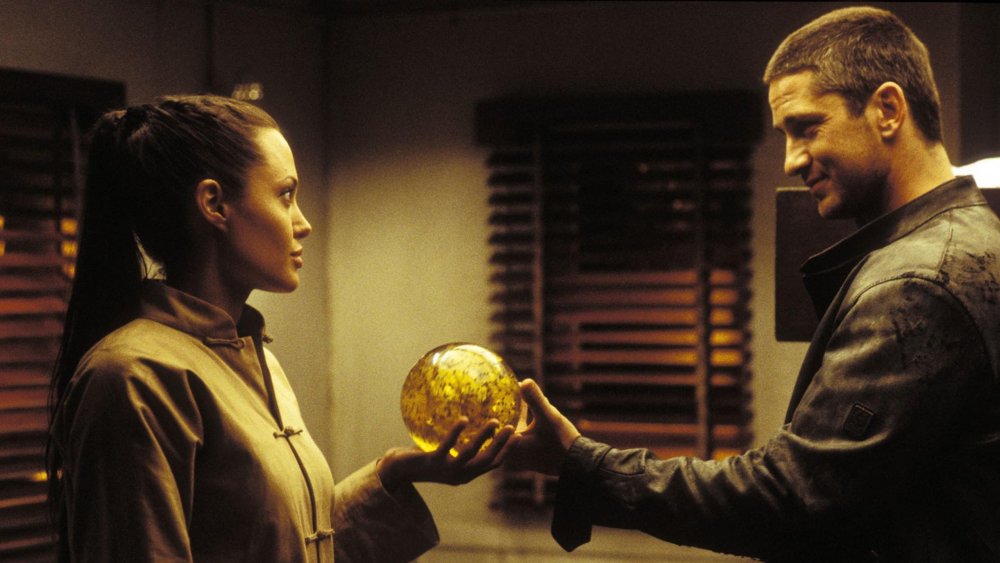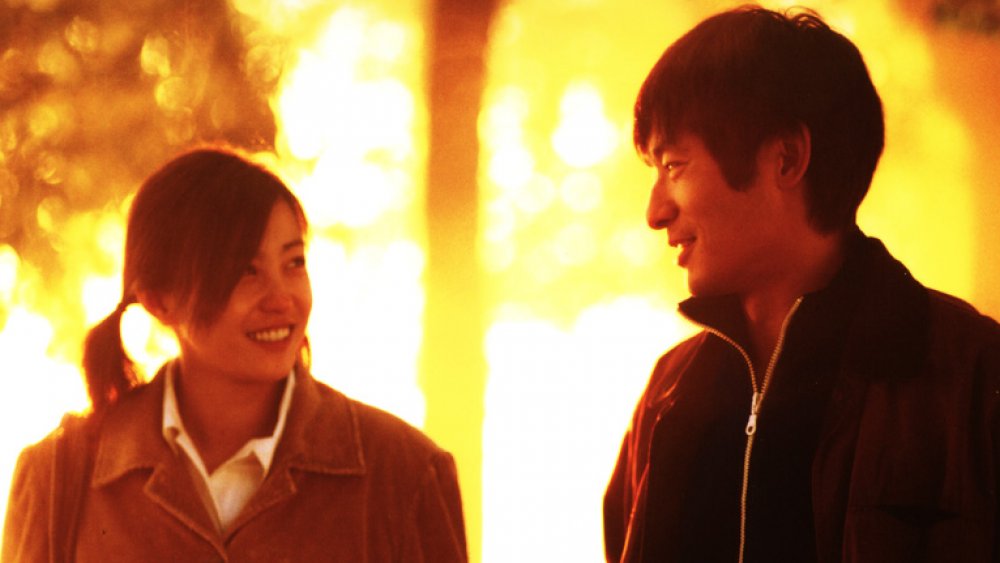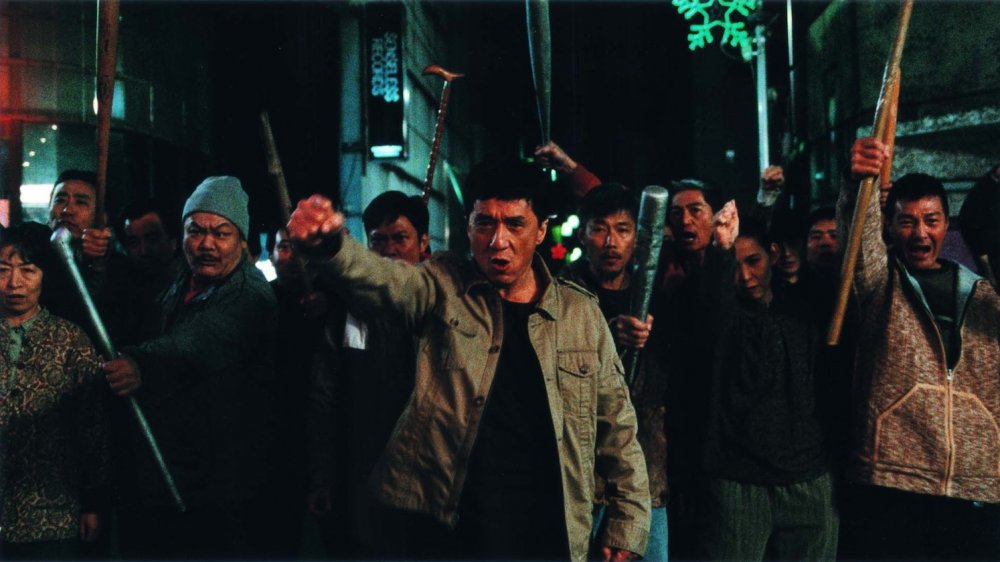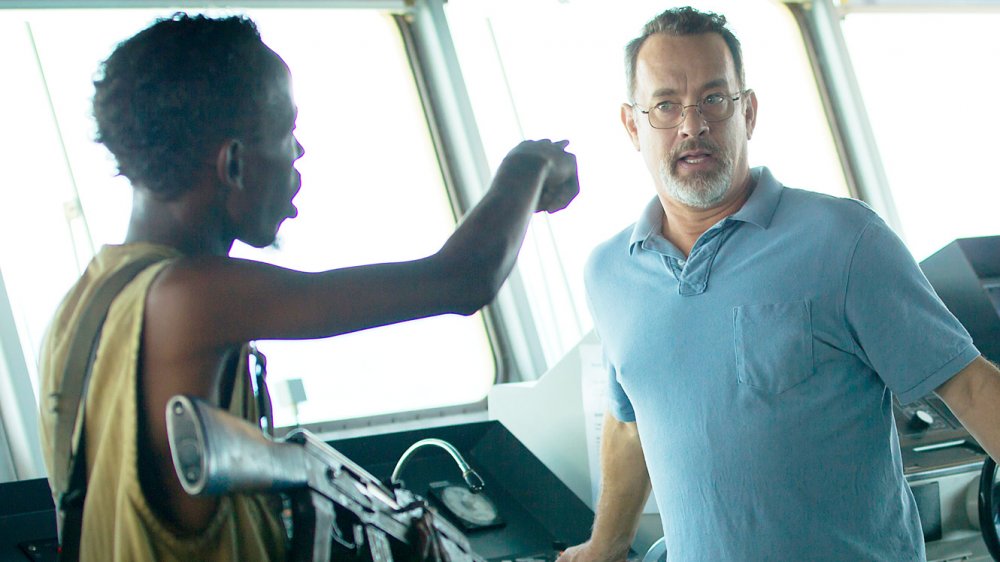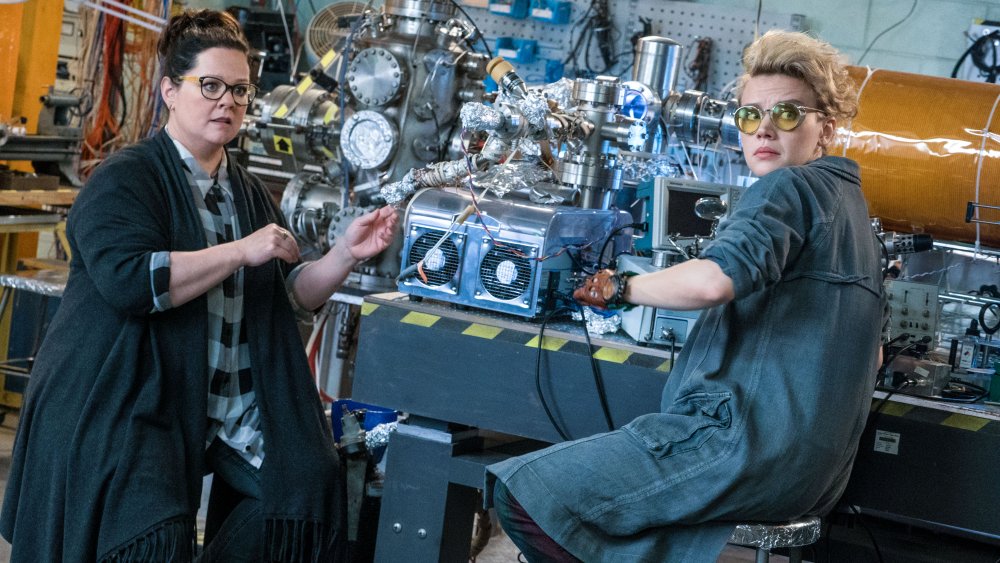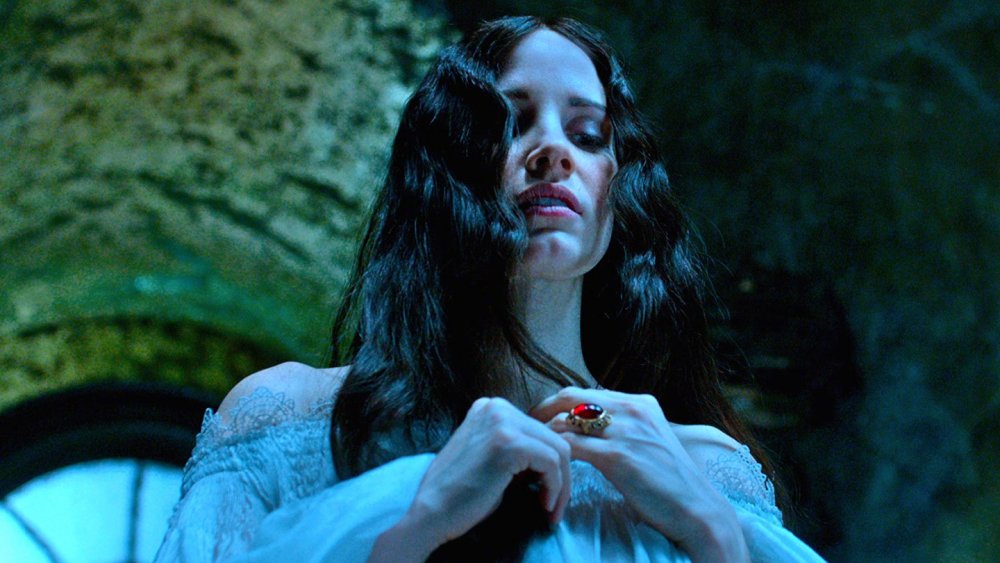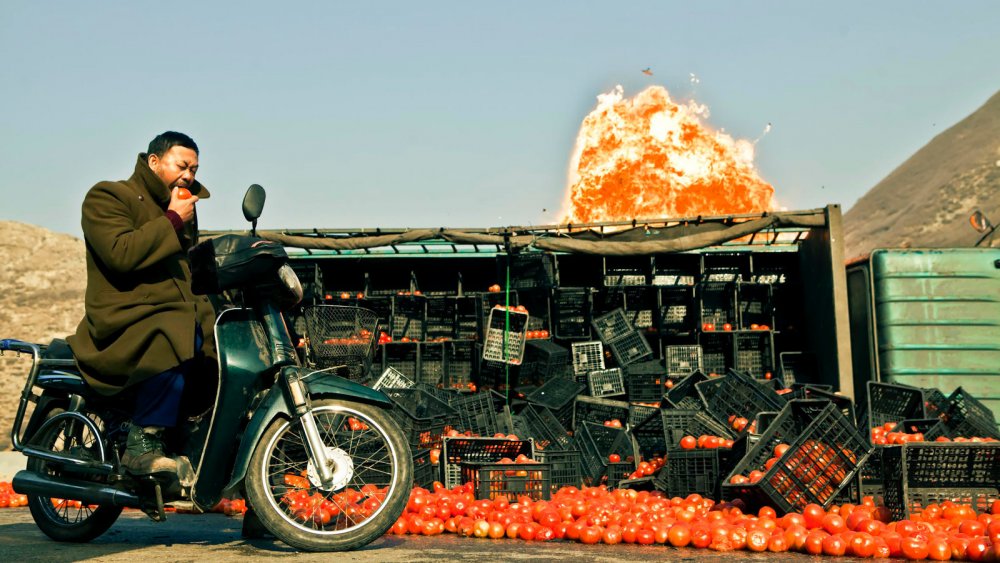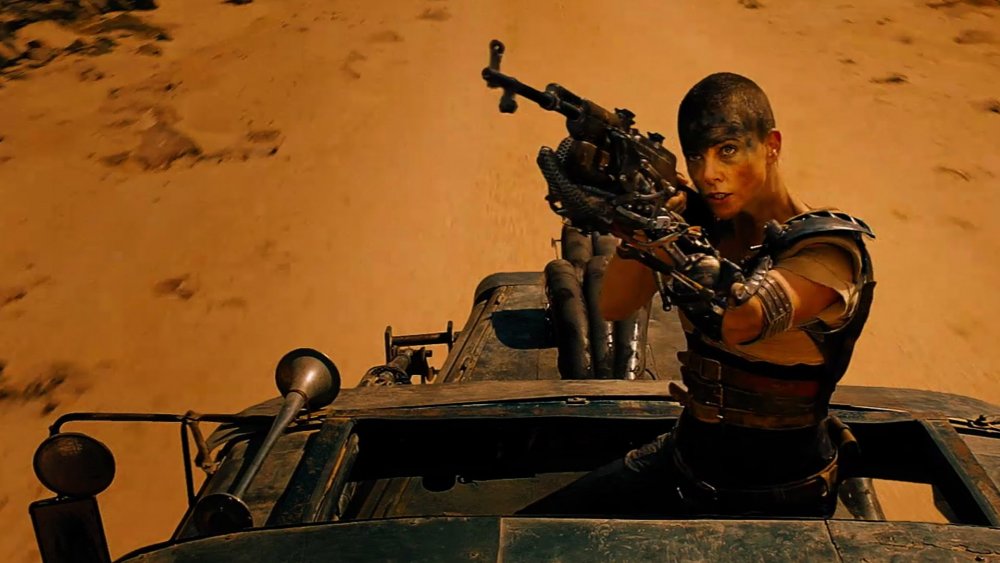Directors Who Refused To Recut Their Movies For China
Although film has always been a medium for directors and writers to explore taboo subjects, push the boundaries of comedy, and delve into controversial political issues, there's a long history of censorship in Hollywood. In the 1930s, the "Hays Code" set limits around film content, and directors had to get creative to work around it. Today, American directors aren't beholden to those outdated guidelines, but if they want to screen their films in China, they do have to submit them to a board of censors who could object to anything from graphic violence and government criticism to plots focused on the paranormal. These rules apply to any filmmaker hoping to compete in the Chinese market, even if they hail from the superpower itself.
Does this mean Chinese audiences never get to see foreign or controversial films? Well, not necessarily. There are plenty of filmmakers and movie studios who are willing to play along with China if it means making those big bucks, and films like Logan and Cloud Atlas have been edited for Chinese release. However, despite all the money that can be made, there are numerous directors out there who are willing to let their profits take a hit if it means sticking with their artistic vision. Here's why these films were banned in China, and why the directors decided not to edit their final cuts to appease the censors.
Quentin Tarantino wouldn't recut Once Upon a Time in Hollywood
Set in 1969 Los Angeles, Quentin Tarantino's Once Upon a Time in Hollywood follows washed-up actor Rick Dalton (Leonardo DiCaprio) and his stunt double, Cliff Booth (Brad Pitt), as Dalton tries to revive his career and the duo becomes entangled with the infamous Manson family. The film also includes a scene depicting famous actor and martial artist Bruce Lee (Mike Moh) in a rather unflattering light. Lee's daughter, Shannon Lee, objected to the way her father was portrayed. She allegedly spoke with China's National Film Administration personally about her frustrations with the film, which resulted in a ban.
Tarantino has gotten into trouble with the censors before. In order to release Django Unchained in China, he had to edit some of the more violent scenes out. Therefore, he probably wasn't surprised when he found out that he would have to jump through some hoops if he wanted to bring Once Upon a Time in Hollywood to the Chinese market. But this time around, he decided that it wasn't worth the hassle, and he refused to cut the scenes featuring Lee.
Christopher Nolan wasn't going to touch The Dark Knight
The Dark Knight, Christopher Nolan's dark, gritty follow-up to Batman Begins, was a massive success by any account. It raked in money at the box office, it earned rave rave reviews from critics, and although superhero films are rarely represented at major awards shows, it won two Oscars. Plus, Heath Ledger's iconic performance as the Joker became the gold standard for every actor who played the role in later Batman films.
However, the chances of The Dark Knight getting past the censors without requests for serious edits was always unlikely, and Nolan doubted that the scenes in which a corrupt businessman flees to Hong Kong would be acceptable. Rather than take a chance by going through the censors (and likely wasting time and money), Nolan and Warner Bros. decided ahead of time that they weren't going to bother trying to crack the Chinese market. The studio released a statement about their choice, citing "pre-release conditions" and "cultural sensitivities" as the deciding factors.
Martin Scorsese wouldn't edit The Departed for Chinese censors
Martin Scorsese's crime thriller The Departed may have been hugely popular in America and other international markets, but the film was never released in Chinese theaters. It might seem like screenings were prohibited because of the violence in the film, which the censors are generally quite sensitive about. And yes, there are plenty of graphic scenes in The Departed. After all, in any mob movie, you're going to see violent conflict and clashes. But it wasn't the violence in The Departed that proved to be its downfall with the censors.
What was the final straw? There was a reference to Chinese authorities secretly purchasing advanced military hardware. It may not have seemed like a big deal to the average viewer, but sometimes, all it takes is a few lines or a seemingly irrelevant reference to set off the alarm bells for the Chinese censors. Scorsese wasn't about to compromise his original ideas for his film, so that was that — The Departed couldn't be released in China.
China said no to Lara Croft: Tomb Raider - The Cradle of Life
Directed by Jan de Bont, Lara Croft: Tomb Raider – The Cradle of Life is the follow-up film to the original Lara Croft: Tomb Raider. The events of the movie take place across international borders, as Lara travels everywhere from Santorini to Tanzania. At one point, Lara ends up in Hong Kong as she searches for a mysterious orb that will lead the owner to the Cradle of Life, which conceals a box that could unleash a deadly plague on the planet. Lara makes it her mission to prevent it from ending up in the wrong hands. But even though Lara traveled across the globe, the film would never make it over to China, as the censors didn't approve of the content.
So what reason was given for the ban on Cradle of Life? The film portrayed Chinese society as "chaotic" and depicted a country that lacked a strong government. Predictably, this was a red flag for the censors, and it led to a ban. Needless to say, the censorship board is a tricky system to get around, and de Bont decided not to rework the film just for the Chinese market.
The director of Summer Palace was rejected by his home country
International releases aren't the only films that have to go through the censors before screening in China. Even Chinese filmmakers have to deal with the censor system to release their films in their own country. Some of them choose to forego much bigger profits to produce the films they want anyway.
When Lou Ye set out to direct his film Summer Palace, he didn't shy away from narratives that went against the censorship guidelines. From the beginning, there was no doubt that a film like Summer Palace would almost definitely be rejected by the censors. The events of the film take place during the 1989 student protests in Beijing that eventually lead to the tragic Tiananmen Square massacre, which is a highly controversial topic in China.
Ye knew that the political criticism (and the unclothed scenes) in Summer Palace would make it unlikely that he'd be able to release the film in China. But before trying his luck with the censors, he decided to do something bolder. Without even submitting it for possible rejection, he went ahead and entered it to screen at Cannes Film Festival. His risky move both succeeded and backfired. In the end, Summer Palace received mainly positive reviews from critics, but Ye was also banned from making movies in China for five years.
China turned down Derek Yee's Shinjuku Incident
Derek Yee's crime drama Shinjuku Incident, starring Jackie Chan, follows a mechanic nicknamed "Steelhead" as he searches for his wife in Japan and gets caught up in the criminal underworld. Shinjuku Incident didn't shy away from violence, and naturally, the censors weren't keen on the idea of releasing it to Chinese audiences.
From the start, Yee had a feeling that the film would be too violent for the censors. He went ahead and submitted it anyway, and when he got their feedback, it was exactly as he expected — either tone it down, or Shinjuku Incident wouldn't be released in China. Yee thought it over and strongly considered it, but in the end, he decided that he didn't want to cut any scenes from his film. Chan agreed with Yee's choice. Yee ultimately decided to move forward with the film as he had envisioned it and accept that it wouldn't be screened for Chinese audiences.
Paul Greengrass refused to cut Captain Phillips
Captain Phillips tells the true story of an American hostage who was taken captive by Somali pirates and eventually rescued by the military. Directed by Paul Greengrass and starring Tom Hanks as Captain Richard Phillips, the suspenseful plot basically boils down to a straightforward rescue mission, but this proved to be too controversial for China's censorship board.
Why was Captain Phillips prohibited from screening in China? At first, the reasoning was not made clear to the public, but a leaked email revealed the cause. Apparently, it was because the film depicted the United States military going out of their way to save a single civilian, which would be an unlikely move for Chinese military in a similar scenario. Any film that involves politics, especially foreign policy, is less likely to gain entry to the Chinese market. It doesn't mean that it's impossible, but in these cases, the director and studio should be prepared to either cut certain scenes or accept the loss in profits.
Paul Feig wasn't afraid of no censors
The 2016 Ghostbusters reboot seemed like a normal summer blockbuster by American standards ... but in China, it was a different story. Sony wasn't entirely sure if Ghostbusters would be able to get past the censors, although they were prepared for the possibility. In fact, they even came up with an entirely new title for a potential Chinese release, Super Power Dare Die Team. But here's the problem. Films with supernatural themes are very taboo in the Chinese market. Incorporating ghosts or references to the paranormal won't always result in an instant ban, but generally, the film has to conclude with the characters realizing that the ghosts, spirits, or demons were all figments of their imagination.
Unfortunately for the cast, crew, and director Paul Feig, the censors weren't having it. The movie completely relied on supernatural elements, and unless the filmmakers could work in some kind of twist at the end revealing that all of the ghosts were actually fake, the plot just wasn't going to fly. In the end, Feig knew he couldn't release the film in China without essentially butchering the narrative, so it never hit the Chinese market.
China wasn't crazy about Crimson Peak
Guillermo del Toro's films often take place in surreal settings, blurring the line between what's real and what's imagination. And in the worlds that del Toro invents, fantasy merges with horror. In other words, Crimson Peak is a quintessential del Toro film. It's set in a haunted Gothic mansion in England, and Edith Cushing (Mia Wasikowska) is plagued by visions of ghosts as she discovers horrifying secrets about her new husband's past.
Crimson Peak was never screened in China, and at first glance, it might seem like Crimson Peak was obviously banned because of the ghosts in the film. After all, it was a pretty creepy film, and the censors generally flag ghost stories and horror films. While that may have been a contributing factor, there were some other theories surrounding the ban. There's a good chance that the primary reason the censors flagged the film was because it depicted a romantic relationship between siblings. Either way, del Toro didn't move forward with any edits based on the censors feedback, and the film was never released in China.
A Touch of Sin's director critiqued the Chinese government
Jia Zhangke's film A Touch of Sin explored the stories of several characters as they related to important events in contemporary Chinese history. Like many of Zhangke's films, A Touch of Sin was rather bleak, and it certainly didn't portray China is a totally positive light. And as you might've guessed, the violence and political critiques in the film resulted in a ban.
A Touch of Sin wasn't just banned for violent content. The film also focused on government corruption in China, and it was explicitly critical of the Chinese authorities. The events in the film are based on real people and historical events. Despite this, Zhangke had originally planned to release the film in China after screening it at foreign festivals. He was optimistic about an eventual release date, but it never happened. At first, it looked like his film would get through the censors, as they tentatively approved the final cut. But behind the scenes, they changed their minds and went back on their initial decision. In fact, the government went so far as to instruct Chinese journalists to refrain from writing about the film.
Luca Guadagnino wouldn't alter Call Me by Your Name
Based on the novel of the same name, Call Me by Your Name follows the story of Elio (Timothée Chalamet), who falls in love with his father's intern, Oliver (Armie Hammer), while his family spends the summer in Italy. The lush, dreamy settings, the chemistry between the two actors, and the masterful dialogue earned director Luca Guadagnino and the rest of the cast and crew well-deserved praise. Call Me by Your Name was a hit with the critics, even receiving a nomination for Best Picture at the Academy Awards and winning an Oscar for Best Adapted Screenplay.
But this romantic coming-of-age film didn't sit well with the censors. The Chinese censor system bans movies featuring "homosexual content," meaning that any films centering on LGBT characters are unlikely to get approved. There have been some exceptions to the rule. For example, an edited version of Bohemian Rhapsody was permitted, but Call Me by Your Name was banned. Even with the explicit scenes cut, there was a good chance it never would've been accepted, and Guadagnino had crafted such a touching film that he wasn't about to leave some of the most pivotal moments on the cutting room floor for the sake of the censors.
George Miller couldn't recut Mad Max: Fury Road
When George Miller's Mad Max: Fury Road was released, it was lauded for its incredible cinematography, feminist characters, and for bringing new life to a classic franchise. Fury Road also made a huge impression at the Academy Awards, where it won six Oscars. But if Chinese audiences wanted to see all those epic car chases, they wouldn't get to watch it on the big screen.
A clear reason for the ban was never given, but it was likely because of the film's "dystopian themes." Problem is, the dystopian themes were basically the point of the entire film, so there was no way to make it palatable to the censors, even if Miller had decided to go ahead with heavy editing. However, there's also a possibility that nothing Miller could've done would have changed the board's decision. As it turns out, China has a policy of limiting foreign films to a certain number of releases per year so that they don't saturate the market and introduce too much competition for Chinese films.
